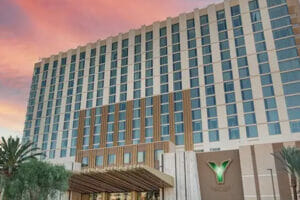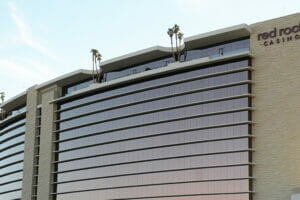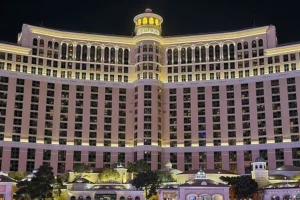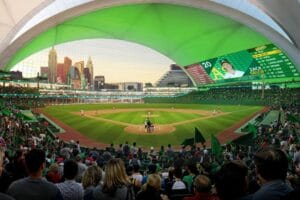Las Vegas Ordinance May Make Stopping on Pedestrian Walkways Illegal

The Clark County Commission has introduced an ordinance targeting the pedestrian bridges that cross between the famous Nevada casinos on either side of the Las Vegas Strip. This proposal, if passed, will criminalize stopping on these bridges, making it a misdemeanor offense.
The heart of the ordinance lies in creating “pedestrian flow zones” on the 15 bridges spanning the Strip, and within 20 feet of adjoining escalators and stairs. Each zone will be designated with clear signage to ensure pedestrians are aware of the rules.
The intent is to prevent actions that encourage stopping or standing, which often leads to congestion and impedes the flow of pedestrian traffic. However, civil liberties unions are concerned about the proposals. Apart from the optics of a relatively punitive law in Sin City, campaigners argue that the First Amendment right to assemble could be affected.
The timing of the proposal suggests it may be a reaction to the recent crowd behavior during the F1 Las Vegas Grand Prix. Despite spending millions shoring up the bridges with fences to ensure no one could see the big-ticket event for free, the walkways still became heavily congested with onlookers during the spectacular race.
In fact, the proposed ordinance specifically mentions sporting events as a reason for its introduction.
“Clark County continues to attract major sporting events and has become the home to major sports teams,” lawmakers said. “Clark County has a substantial government interest in providing safe pedestrian access on the Las Vegas Strip.”
Balancing Safety with Civil Liberties
The proposal has sparked a debate about the balance between ensuring pedestrian safety and upholding civil liberties.
The American Civil Liberties Union (ACLU) of Nevada has raised concerns, with Athar Haseebullah, the executive director, highlighting that the ordinance could infringe upon the First Amendment right to assemble.
“There’s a right to engage in protected First Amendment activity, whether that’s protests, whether that’s street performances or street art, whether or not it ends up being someone who’s attempting to administer religious services,” he said, speaking to the Las Vegas Review-Journal.
“Under this specific proposal, none of those activities would be permitted.”
In response, the ordinance proponents argue that there would still be ample space for free speech activities on sidewalks that aren’t part of the proposed pedestrian flow zones.
The Commission says the restrictions are needed to discourage disorderly behavior and keep Las Vegas Boulevard safe for all.
An analysis by UNLV’s Department of Criminal Justice has revealed a 23% increase in calls for disorderly behavior on Las Vegas Boulevard from 2018 to 2022, with a significant portion occurring on the pedestrian bridges.
Enforcement and Legal Implications
However, Haseebullah also express concern about enforcement. Marijuana is legal in Nevada, but technically illegal to smoke in public. However, that law is openly flouted, as anyone who has spent any time at all on Las Vegas Boulevard has smelled.
The civil liberties campaigner sees similar problems practically enforcing this new rule. He also says it could unequally target locals over tourists.
“If we’re in the resort corridor and there’s a few tourists who stop to take a selfie, we’re not clear if they’re going to enforce this the same way they would if they see a street performer stopping by or if they see a group of individuals who are stopping for three to five minutes,” Haseebullah said.
The ordinance’s introduction has set the stage for a potential legal showdown, as it challenges the delicate balance between public safety needs and constitutional freedoms. To be cynical, the city’s casinos and Nevada retail sportsbooks may also have a stake in this, as time people spent outside on the bridges is time not spent in their venues.
A public hearing on the measure is scheduled for the next Clark County Commission meeting on December 5.
This proposal reflects a broader challenge faced by popular tourist destinations like Las Vegas, where the management of public spaces often intersects with individual rights. The final decision on this proposal could set a precedent for how busy cities balance managing heavily trafficked tourist areas while respecting the civil liberties of their visitors.











